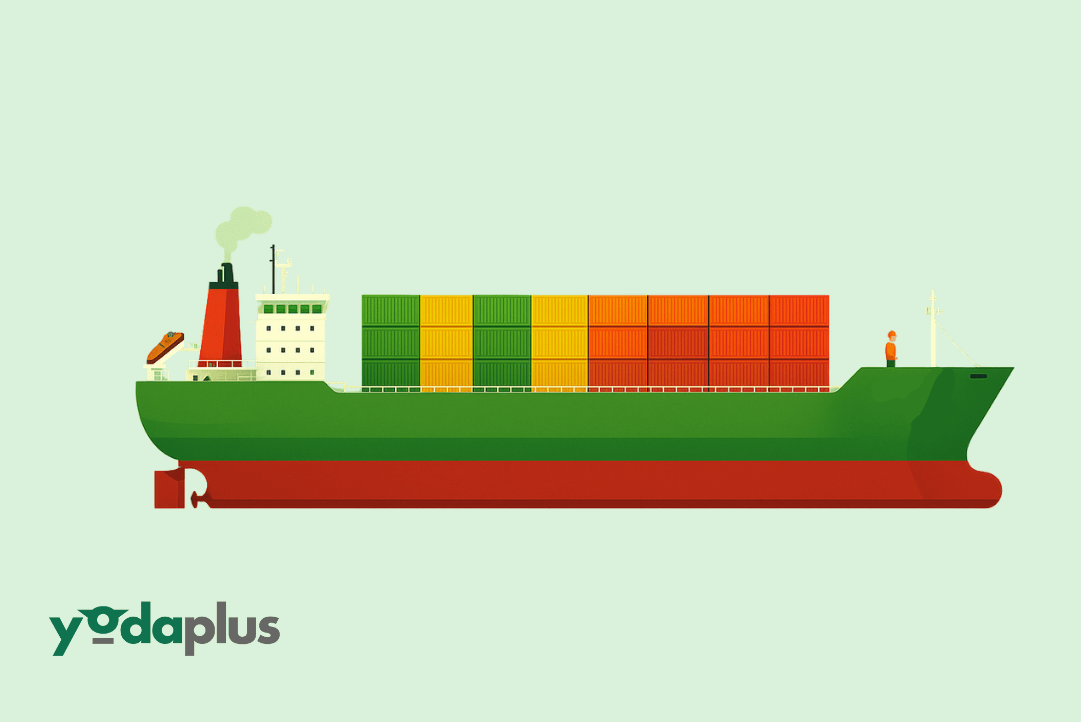
What Is MARPOL and Why Is It So Important for Ship Operators?
August 8, 2025 By Yodaplus
In the shipping industry, safety and efficiency are important, but protecting the marine environment is just as critical. This is where MARPOL comes in. It is one of the most influential international agreements that guides how ships operate at sea. For ship operators, understanding MARPOL is not just about avoiding penalties, it is about safeguarding oceans for the future.
Understanding MARPOL
MARPOL stands for the International Convention for the Prevention of Pollution from Ships. It was developed by the International Maritime Organization (IMO regulations) and first adopted in 1973, with the current version including later amendments. The convention addresses pollution caused by oil, chemicals, sewage, garbage, and air emissions from ships.
Its main purpose is to set strict rules that reduce the environmental impact of shipping. This applies to all vessels, regardless of size or type, and is enforced by flag states and Port State Control inspections.
Why MARPOL Matters for Ship Operators
For ship operators, MARPOL is more than a set of guidelines. It is a core part of maritime compliance that affects daily operations, crew training, and long-term vessel management.
Here are key reasons why MARPOL is important:
1. Protecting the Marine Environment
MARPOL limits the discharge of harmful substances into the ocean. This includes rules for oil spills, no-discharge zones, and waste management systems. Compliance directly contributes to cleaner seas and healthier marine life.
2. Avoiding Penalties and Detentions
Non-compliance can lead to fines, detentions, and legal consequences. Sire Vetting inspections, Port State Control checks, and environmental audits often include MARPOL compliance as a key factor.
3. Maintaining Reputation
Clients, partners, and regulators view compliance with MARPOL as a sign of professionalism. A vessel known for strong environmental practices is more likely to secure long-term contracts and maintain industry trust.
Key MARPOL Annexes That Ship Operators Should Know
MARPOL is divided into six annexes, each targeting a specific type of pollution:
- Annex I: Oil pollution prevention
- Annex II: Control of noxious liquid substances in bulk
- Annex III: Harmful substances in packaged form
- Annex IV: Sewage pollution prevention
- Annex V: Garbage pollution prevention
- Annex VI: Air pollution from ships
Each annex has clear guidelines on equipment, operational procedures, and shipping documents that must be maintained.
The Link Between MARPOL and Other Maritime Regulations
MARPOL does not exist in isolation. It works alongside other major conventions like SOLAS, the ISM Code, STCW, and the ISPS Code. While SOLAS focuses on vessel safety and crew protection, MARPOL focuses on preventing environmental damage. The COLREGs ensure safe navigation, and ISGOTT provides tanker-specific safety and environmental guidelines.
This combination forms a strong framework for shipping compliance and maritime environmental compliance.
Role of Shipping Documentation in MARPOL Compliance
Compliance with MARPOL is closely tied to having the right maritime documentation. Ship operators must maintain updated ship documents such as:
- Oil Record Book (Part I and II)
- Garbage Record Book
- Sewage management plans
- Certificates of compliance for air emissions
- Fire Control Plan and other safety-related documents that align with environmental procedures
Many of these are reviewed during Port State Control inspections and Sire Vetting processes. If shipping documentation is incomplete, outdated, or missing, a vessel can be detained even if its equipment meets the standards.
Challenges in Staying MARPOL-Compliant
Even for experienced ship operators, staying fully compliant can be challenging. Common issues include:
- Incomplete documentation: Missing or outdated logs and certificates
- Crew knowledge gaps: Crew members not fully trained in MARPOL procedures
- Operational lapses: Discharges outside of allowed zones or failure to use pollution control equipment
- Changing regulations: MARPOL is regularly updated, so procedures must evolve
How Document Intelligence Tools Can Help
Modern fleets are turning to document intelligence solutions to simplify compliance. By digitizing shipping documents and making them searchable, these tools reduce the time needed to prepare for audits and inspections.
Platforms like OceanDocs by Yodaplus help ship operators store, organize, and retrieve compliance documents in seconds. This ensures that during an inspection, the crew can produce the right document without delays, improving both compliance and operational readiness.
You can explore more about smart maritime documentation solutions at Yodaplus.com.
Best Practices for Ship Operators
To build a strong MARPOL compliance culture, ship operators should:
-
- Train the Crew Regularly
Ensure every crew member understands MARPOL requirements, especially those relevant to their role. - Keep Documents Updated
Maintain accurate and accessible records for all pollution prevention activities. - Integrate MARPOL into Safety Management
Link environmental procedures to your ISM Code and vessel safety plans. - Conduct Internal Audits
Regularly check compliance before an official inspection to identify and fix gaps.
- Train the Crew Regularly
- Use Digital Solutions
Leverage document intelligence platforms to stay audit-ready at all times.
Final Thoughts
For ship operators, MARPOL is not only a legal obligation but also a commitment to responsible shipping. It connects directly with other maritime regulations like SOLAS, the ISM Code, STCW, and the ISPS Code, creating a complete framework for maritime environmental compliance.
By combining crew training, updated shipping documentation, and smart tools like OceanDocs by Yodaplus, operators can meet MARPOL requirements confidently. This approach not only avoids penalties but also supports the shared goal of protecting the oceans for generations to come.